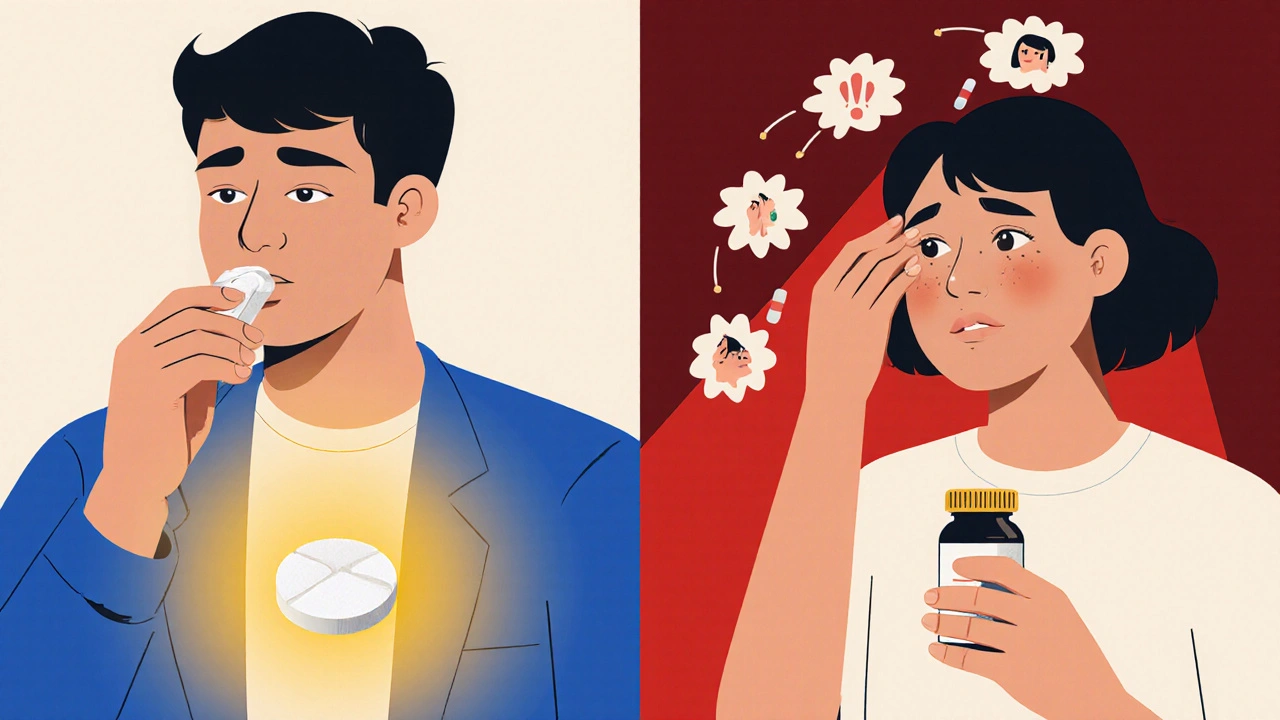Nocebo Responses: When Expectation Makes You Feel Worse
When you expect a medicine to make you sick, it often does—even if the pill is just sugar. This is the nocebo response, a harmful reaction caused by negative expectations rather than the actual substance. Also known as the negative placebo effect, it’s not imagination—it’s your brain and body reacting to fear, warnings, or stories you’ve heard. Studies show people given fake treatments report side effects like headaches, nausea, or dizziness simply because they were told those things might happen. The same drug given without those warnings often causes far fewer issues.
It’s not just about pills. A doctor saying, "This treatment can cause severe fatigue," can plant the seed—and your body follows. This happens with chronic pain, anxiety meds, even vaccines. The placebo effect, the positive counterpart where belief in a treatment improves symptoms works the same way, but in reverse. Both show how powerful your mind is in shaping your physical experience. Then there’s the medication side effects, real biological reactions caused by drugs—which are often confused with nocebo effects. The difference? One comes from chemistry, the other from expectation. But both feel just as real.
Doctors and pharmacies often list every possible side effect, no matter how rare, because they have to. But that list can turn a harmless pill into a threat in your mind. If you’ve ever felt dizzy after reading the label, you’ve felt the nocebo effect. It’s why some people stop taking meds they could benefit from—not because the drug doesn’t work, but because they were scared into thinking it would hurt them.
That’s why understanding this matters. You’re not weak for feeling worse after hearing a warning. Your body is responding to what you believe. And if you’ve been told a treatment is dangerous, or you’ve seen someone else suffer, your brain has already started preparing you for pain. That’s not weakness—it’s biology. But it’s also fixable. With better communication, clearer context, and awareness, you can reduce the power of these false signals.
In the posts below, you’ll find real stories and science-backed advice on how medications affect people—not just chemically, but psychologically. From how SSRIs and NSAIDs trigger GI issues that might be partly nocebo-driven, to why amantadine causes dizziness even when the dose is low, these articles show how expectation, fear, and biology mix. You’ll also see how patients manage symptoms that feel real but aren’t always caused by the drug itself. This isn’t about dismissing pain. It’s about understanding what’s really happening so you can make smarter, calmer choices.
Published on Nov 17
9 Comments
Placebo and nocebo effects shape how you experience medication side effects - even when you're taking a sugar pill. Studies show up to 76% of side effects reported in trials happen in placebo groups, driven by expectations, not chemistry.

